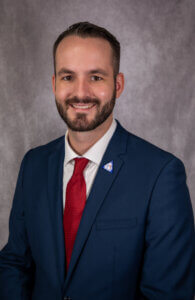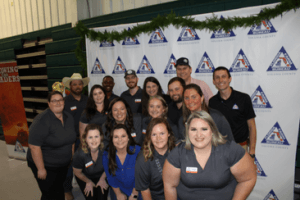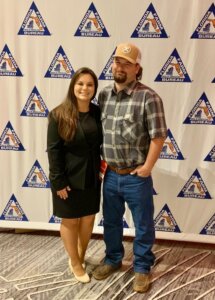May 2024 FloridAgriculture e-Newsletter
 On April 18th, 2024, the U.S. Court of International Trade remanded a 2019 decision to the U.S. Department of Commerce (DOC), which determined Mexican tomatoes were being dumped in the U.S. market. This decision came as a result of a court case filed by a large Mexican tomato exporter.
On April 18th, 2024, the U.S. Court of International Trade remanded a 2019 decision to the U.S. Department of Commerce (DOC), which determined Mexican tomatoes were being dumped in the U.S. market. This decision came as a result of a court case filed by a large Mexican tomato exporter.
The TSA was reached in 1996 by the DOC and signatory producers/exporters of fresh tomatoes grown in Mexico to stop the unfair trade practices of Mexican tomato exporters. An investigation conducted by DOC concluded that Mexican tomatoes are being dumped at an average rate of 20.91%. In response to this, the 2019 TSA was established to close the loopholes of the previous suspension agreements, in exchange for suspension of anti-dumping duties against Mexican exporters. However, since the 2019 TSA became effective, the DOC has documented over 100 cases of Mexican companies that are still in violation of this binding, legal agreement. Furthermore, during the 28 years under this agreement, Mexican tomato imports have increased nearly 400 percent, allowing Mexico to dominate the U.S. tomato industry by controlling over 65 percent of the market.
Florida Farm Bureau Federation is dedicated to advocating for the domestic fresh tomato industry and for the termination of the 2019 TSA.
“Application and effective enforcement of the current trade remedy laws, that are feasible for U.S. producers, is the first step toward the development of much need comprehensive policies,” stated Florida Farm Bureau President, Jeb Smith.
It is important to note that this decision will have no effect on the 2019 iteration of the TSA, as it solely determined the DOC should have used a different timeframe to evaluate dumping levels. We can expect the DOC to re-conduct its 2019 dumping investigation by using data from the original 1996 dumping case, rather than the most recent data.
For further information or questions, please contact Florida Farm Bureau’s Ag Policy Department.

 On February 15, 2024, the U.S. District Court for the District of Columbia issued an order that nullified the U.S. Environmental Protection Agency’s (EPA) approval of Florida’s application to take over permitting authority from the U.S. Army Corps of Engineers (USACE) under Section 404 of the Clean Water Act (CWA) within the state. The court’s decision was based on allegations that the federal defendants violated the Administrative Procedure Act (APA) and the Endangered Species Act (ESA) during the approval process, which occurred in the final days of the Trump administration.
On February 15, 2024, the U.S. District Court for the District of Columbia issued an order that nullified the U.S. Environmental Protection Agency’s (EPA) approval of Florida’s application to take over permitting authority from the U.S. Army Corps of Engineers (USACE) under Section 404 of the Clean Water Act (CWA) within the state. The court’s decision was based on allegations that the federal defendants violated the Administrative Procedure Act (APA) and the Endangered Species Act (ESA) during the approval process, which occurred in the final days of the Trump administration. On April 2, the U.S. Environmental Protection Agency (EPA) announced changes to the pesticide labeling requirements of chlorpyrifos, diazinon, and malathion. Additionally, the EPA committed to issuing Endangered Species Protection Bulletins that set geographic limitations for these organophosphate insecticides, which will be available on Bulletins Live! Two.
On April 2, the U.S. Environmental Protection Agency (EPA) announced changes to the pesticide labeling requirements of chlorpyrifos, diazinon, and malathion. Additionally, the EPA committed to issuing Endangered Species Protection Bulletins that set geographic limitations for these organophosphate insecticides, which will be available on Bulletins Live! Two.

 Sharma and the Wilkersons’ combined expertise has developed a better understanding of what works for corn. Their partnership exemplifies
Sharma and the Wilkersons’ combined expertise has developed a better understanding of what works for corn. Their partnership exemplifies  For the last decade, FFBF has been receiving complaints from our active membership in the Panhandle and surrounding counties about substantial crop losses due to deer depredation. These losses are a direct result from urban encroachment, forcing wildlife onto rural agricultural landscapes, poor management practices by the Florida Fish and Wildlife Conservation Commission (FWC), as well as strict rules implemented by FWC that disallow harvest rates and practices that help to manage a healthy and harmonious population of deer within the landscape.
For the last decade, FFBF has been receiving complaints from our active membership in the Panhandle and surrounding counties about substantial crop losses due to deer depredation. These losses are a direct result from urban encroachment, forcing wildlife onto rural agricultural landscapes, poor management practices by the Florida Fish and Wildlife Conservation Commission (FWC), as well as strict rules implemented by FWC that disallow harvest rates and practices that help to manage a healthy and harmonious population of deer within the landscape. Dallas Hull grew up in New Smyrna Beach where she was involved in her local 4-H and FFA programs. Her father was a Volusia County Fair Association Director during Hull’s childhood, which led to her involvement showing livestock at the county fair. She has always been around agriculture in some facet, and over the last few years, has truly grown into a strong advocate and leader in her county.
Dallas Hull grew up in New Smyrna Beach where she was involved in her local 4-H and FFA programs. Her father was a Volusia County Fair Association Director during Hull’s childhood, which led to her involvement showing livestock at the county fair. She has always been around agriculture in some facet, and over the last few years, has truly grown into a strong advocate and leader in her county.  Taste of Volusia is a
Taste of Volusia is a 

 Matt and Blaire Fisher grew up in Florida’s Panhandle. Blaire grew up in Jackson County and Matt in Washington County, and the couple currently reside in Matt’s hometown of Chipley. Together, they have two sons; Brett and Brody.
Matt and Blaire Fisher grew up in Florida’s Panhandle. Blaire grew up in Jackson County and Matt in Washington County, and the couple currently reside in Matt’s hometown of Chipley. Together, they have two sons; Brett and Brody.